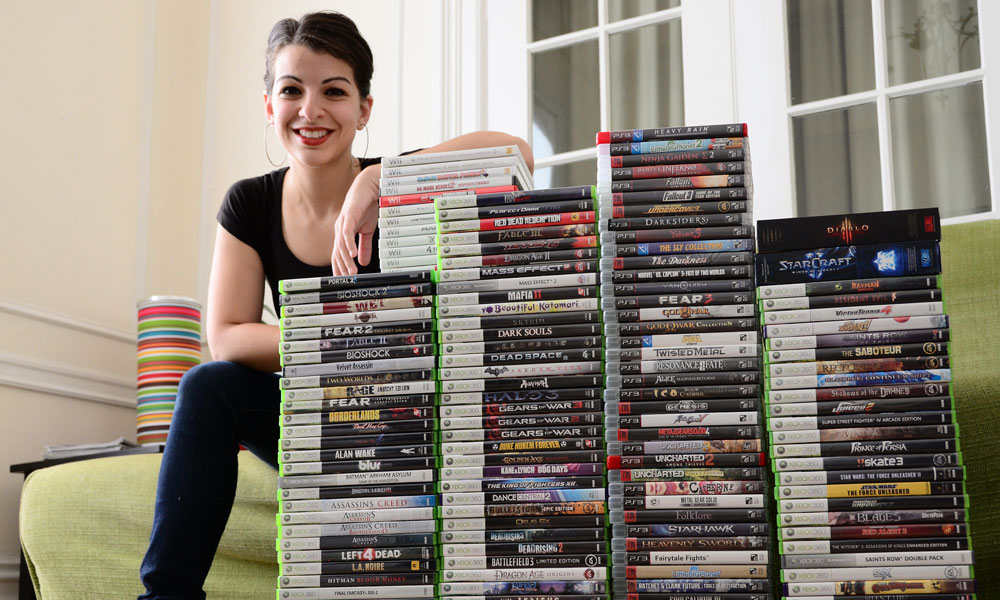
Game Industry Voices Denounce “Gamergate” Harassment
With female videogame-industry figures increasingly under attack online in the midst of a broader debate on journalistic culture, two industry trade groups have come out strongly against the volatile online harassment.
If you’ve heard about this “Gamergate” thing that’s lingering around the news and found yourself more than a little confused, don’t feel bad—it’s a complicated subject not easy to explain.
But the online cultural debate, which in recent months has led to escalating threats against women in the videogame industry, is enough of an issue these days that two prominent gaming industry groups are speaking out. More details:
What is “Gamergate”? Long story short, the controversy involves the changing nature of the gaming industry and raises bigger questions about the ethics of the journalists who cover it. Gamergate’s roots are in a personal conflict involving a game developer, Zoe Quinn, and an ex-boyfriend who published a lengthy blog post criticizing Quinn’s personal choices and accusing her of having an affair with a journalist for Kotaku in an effort to get positive coverage for her game. These claims have since been debunked as a result of an internal investigation by the site, part of the Gawker Media family, but the allegations nonetheless raised questions about how journalists in the gaming space deal with their sources and with the videogame industry as a whole. Vox has a breakdown of other details, including the key role that actor Adam Baldwin has played in promoting the debate.
The irony of this movement is that they want journalistic integrity, but are looking to squash the voices of women at all costs.
Let's be real for a second. #gamergate is the new name for a group that has been harassing me for 2 years. All the same users are involved.
— Feminist Frequency (@femfreq) October 13, 2014
Where threats against women come in: No matter the journalistic concerns, Gamergate has raised significant questions about how women are treated on the internet. Both Quinn and feminist media critic Anita Sarkeesian have been forced from their homes due to online threats, and Sarkeesian was forced to cancel a speech at Utah State University this week because of security concerns after someone contacted the university and threatened to launch “a Montreal massacre style attack” if the event were not cancelled. While Sarkeesian has long dealt with such trolling as part of her work in analyzing the gaming space, the threats and personal attacks picked up as the Quinn story gained heat.
The industry speaks out: This week, the situation got serious enough that two videogame trade groups felt the need to speak up. In comments to The Washington Post this week, a spokesperson for the Entertainment Software Association (ESA) denounced harassment in general. “Threats of violence and harassment are wrong,” the statement said. “They have to stop. There is no place in the videogame community—or our society—for personal attacks and threats.” Meanwhile, the International Game Developers Association, which in August denounced online harassment, questioned efforts to silence critical voices within the industry. “The irony of this movement is that they want journalistic integrity but are looking to squash the voices of women at all costs,” IGDA Executive Director Kate Edwards stated to the Post. “The logic is completely lacking.”
Edwards added that the culture around gaming has increasingly spread from its teenage male roots. According ESA, 48 percent of gamers are female, and 71 percent are above the age of 18.
Correction: A previous version of this story said that Sarkeesian cancelled a University of Utah appearance. In reality, it was at Utah State University. We regret the error.
Media critic Anita Sarkeesian, whose views have been targeted during the Gamergate controversy. (Flickr photo)






Comments